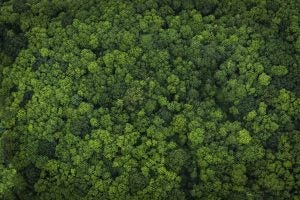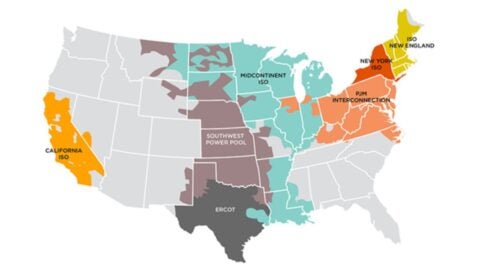Carbon Markets Can Drive Revenue, Ambition for Tropical Forest Countries, New Studies Show
This post was co-authored by Pedro Martins Barata, Senior Climate Director, and Julia Paltseva, Senior Analyst, Natural Climate Solutions.

Global climate mitigation requires rapid action to protect ecosystems, particularly Earth’s tropical forests. Once ecosystems are lost, wide-scale restoration takes time. Recognizing the importance and urgency of taking action to protect intact forests, more than 100 global leaders, representing nations that account for 85% of global forests, pledged at COP26 to halt and reverse deforestation and land degradation by 2030.
We know that tropical forest jurisdictions which have implemented results-based payment programs on reducing emissions from deforestation and forest degradation have been successful at reducing deforestation while bringing co-benefits and buy-in from Indigenous and local forest communities. These programs need to be scaled up to meet the urgency of the climate crisis. Carbon markets are one promising means to do so.
Now two new studies suggest that tropical forest jurisdictions that engage in emissions trading for conserving their forests at large scales could generate significant revenues, and promote more ambitious, but attainable, climate goals.
Untapping revenues from protecting forests
In a study released in June by Amazonia 2030, researchers at Environmental Defense Fund looked at the revenue potential for Brazilian jurisdictions from initiatives like the LEAF Coalition (Lowering Emissions by Accelerating Forest finance), a public-private partnership to provide results-based financing for large scale REDD+.
Launched in 2021, LEAF has already mobilized US $1 billion in financing. With financial flows for REDD+ activities only expected to rise with increased interest from the private sector, the opportunity for forest rich countries to tap into this demand is significant.
But exactly how large is the opportunity? EDF quantified that ending deforestation (both illegal and legal) in the Brazilian Amazon in the next 10 years could generate revenues of at least US $18.2 billion by 2031 through voluntary and compliance carbon markets.
On top of the climate and biodiversity benefits ending deforestation in the Amazon would have, these financial flows could have significant impact for Indigenous Peoples, whose recognized territories account for a quarter of Brazil’s carbon stock and who are positioned to benefit from the strong safeguards required by the standard against which credits will be issued to the buyers in the LEAF Coalition.
To seize the financing opportunity presented by LEAF, Brazil needs to begin curbing deforestation immediately, and implement a series of policy changes and regulatory actions. For a full list of recommended policy actions and a description of Brazilian State participation in LEAF to date, see Financial Opportunities for Brazil from Reducing Deforestation in the Amazon.
Seizing the ambition potential
In addition to the untapped opportunity in the Brazilian Amazon, corporate demand for carbon credits has the potential to support tropical forest countries around the world in achieving their climate commitments under the Paris Agreement.
According to another new report from Environmental Defense Fund and Trove Research, that global demand is skyrocketing. By 2050, the report shows that companies’ demand for carbon credits could surpass the supply that tropical forest countries can generate by 400%. Companies are hungry to invest in forest carbon credits, but after 2030, there may not be enough to meet their demand.
This finding is both a promising signal and a call-to-action for tropical forest countries.
Unlocking incredible potential and necessary resources, this demand for carbon credits offers a tool for tropical forest countries to achieve their climate goals. But to take full advantage of this massive demand, tropical forest countries will need to boost the ambition of their emissions reduction targets in their Nationally Determined Contributions (NDC) under the Paris Agreement.
More ambitious, yet achievable, NDCs from tropical forest countries that meet the high global demand for carbon credits would be a win-win for climate mitigation. Companies in the voluntary carbon market can contribute their fair share to global climate action, and countries can see increased benefits for the climate, people and forests associated with high-integrity tropical forest credits.
Conclusion
The Paris Agreement target of 1.5C cannot be achieved if tropical forests continue to be destroyed. The market’s demand for high-quality tropical forest credits presents a huge opportunity for tropical forest countries to accelerate efforts to end deforestation and realize positive local and global impacts on the climate, forests and the people whose livelihoods depend on them.












